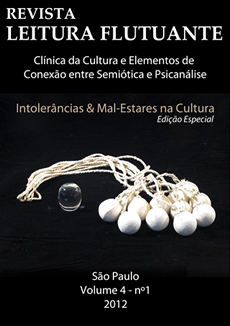Mourning, gender melancholia, and subversive homoeroticism in Virginia Woolf’ Mrs Dalloway and Michael Cunningham’s the hours
Palabras clave:
gender melancholy, mourning, Virginia Woolf, Michael CunninghamResumen
Postmodern re-interpretations of Freud’s theory of mourning have been utilised by political activists to challenge hegemonic gender constructions and heterosexism, most notably during the AIDS epidemic. In Psychic Lives of Power, Judith Butler, using Freud as her source, identifies a culture of ‘gender melancholy’, whereby the gender binary and heteronormativity are established through the incorporation of the excluded and ungrievable same-sex love-object through heightened gender identification. By exploring the relationship between mourning and gender/sexual roles through the lens of Butler’s notion of gender melancholy, I will examine the ways in which Virginia Woolf’s Mrs Dalloway and Michael Cunningham’s The Hours negotiate between self and civilisation; rendered apparent in the uncovering of a subversive homoeroticism and in the metaphor of mourning one’s lost youth and the death of the other. In a comparison between modernist and postmodernist approaches to gender melancholia and non-normative mourning practices, I will examine to what extent these texts utilise psychoanalytic approaches to mourning to challenge the hegemony of the gender binary and heterosexism in society.
About the Author:
Sara D'Arcy is an English literature postgraduate student at University College London and completed her undergraduate degree at the University of Edinburgh. Sara's primary research area is the subject of gender and sexuality in twentieth century and twenty-first century literature, focusing on (re)presentations of sexuality, subjectivity, and the body.
Métricas
Descargas
Cómo citar
Número
Sección
Licencia
Proposta de Política para Periódicos de Acesso Livre
Autores que publicam nesta revista concordam com os seguintes termos:
- Autores mantém os direitos autorais e concedem à revista o direito de primeira publicação, com o trabalho simultaneamente licenciado sob a Licença Creative Commons Attribution que permite o compartilhamento do trabalho com reconhecimento da autoria e publicação inicial nesta revista.
- Autores têm autorização para assumir contratos adicionais separadamente, para distribuição não-exclusiva da versão do trabalho publicada nesta revista (ex.: publicar em repositório institucional ou como capítulo de livro), com reconhecimento de autoria e publicação inicial nesta revista.
- Autores têm permissão e são estimulados a publicar e distribuir seu trabalho online (ex.: em repositórios institucionais ou na sua página pessoal) a qualquer ponto antes ou durante o processo editorial, já que isso pode gerar alterações produtivas, bem como aumentar o impacto e a citação do trabalho publicado (Veja O Efeito do Acesso Livre).


